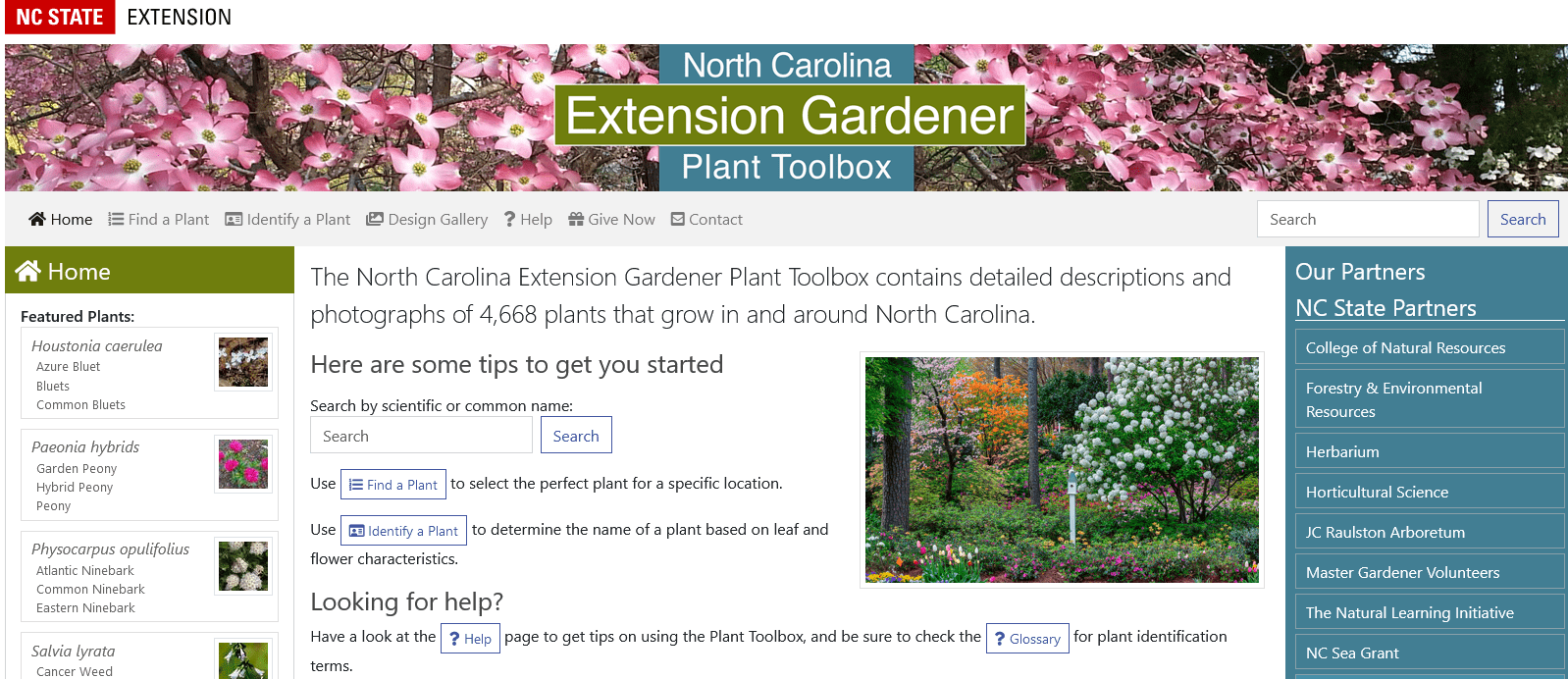Lawns are a holdover from 18th-century England and France that have no business dominating our American landscapes. Making lawns survive in the hot and humid South is expensive, time-intensive, and input-intensive. Worst of all, HOAs can institutionalize this expense in ways that exclude low-income tenants and perpetuate housing segregation.
Most gardening columns focus exclusively on people with lawns. But not everyone has a lawn.
Ignoring the colonialist history of lawns and landscaping today (a big ask), gardening with plants native to North Carolina offers a way to deepen your connection to our home, beautify your living space, and help in the fight for biodiversity.
Best yet, by planting plants that actually evolved here, you’ll reduce the amount of time and energy needed to keep your garden alive, even in the thickest of Carolina clay.
You don’t need a big yard, or even any yard, to experience the benefits. Even with a porch or a balcony, you can grow native plants in pots, bringing the connection to North Carolina, and all the wonderful pollinators right to your doorstep.
To aid you in your journey, here are three tips for starting to garden with native plants, applicable whether you have 10 square feet, or an entire yard to convert.
Learn about the plants you want to plant, and plant things suited to your environment
You wouldn’t plant a coconut tree in Chapel Hill, right? The same logic applies to native plants: plant species that thrive in the conditions that you already have so you don’t need crazy inputs to keep them alive. (It almost sounds revolutionary when thinking about what we do for our lawns…)
The key is to pay attention to the amount of sun, and the type of soil that a plant likes. In Chapel Hill it’s also important to know how delicious the plant is to our omnipresent deer.
My favorite place for all of this information is the Extension Gardener Plant Toolbox hosted by NCSU. Here you can search for plants that meet your specific needs — native, clay or sandy soils, full sun or full shade, etc. I often make a list of plants that will work in a given area so I know my choices.

Even for heavy clay soil, in full shade, with lots of deer browsing, there are plenty of options for native plants for yards. Afterall, if there weren’t, we would never see flowers in the woods at this time of year!
These same principles apply if you’re growing in a container on your porch or patio. Figure out how much sun your area gets, and buy accordingly.
For soil in containers, regular potting soil will often do fine. Still, it’s always good to check the Plant Toolbox to make sure there aren’t special requirements. For example, there are more than a dozen species of blueberries (genus Vaccinium) native to North Carolina. Most of them do well in containers, and prefer more acidic soils, so it’s best to buy the special blueberry soil mixes when planting these in a pot.
Walk around town to see which plants you like
One of the many wonderful parts about living in Chapel Hill is our ability to see native plants all around our town. Once you have your list of plants suitable to your area or container, take a walk.
Obviously, with its beautifully curated beds and labeled plants, including an array of natives in containers, the North Carolina Botanical Garden at UNC is a great place to start. Don’t forget about our green spaces though! If you see something that you love growing along Bolin Creek, or in Merritt’s Pasture, chances are it would grow well in your yard too if you can match the conditions.
Don’t know what the plant is? Try downloading Seek or iNaturalist to turn your phone into a (pretty good) plant identifier.
Maybe most importantly, think about why you like what you see. Is it the color? The texture? The pollinators buzzing around? Or the contrast between it and another plants? Bring these attributes back to the garden or collection of pots that you make at home.
Buy your plants and ask questions often
Spring is a great season for native plant sales. There are ones in neighborhoods, at farmers markets, and more.
We also have a ton of local nurseries that grow and sell a huge variety of native plants year-round. In addition to the NC Botanical Garden, my favorites in Chapel Hill are Rachel’s Native Plants, Dirtbag Gardens, and Piedmont Seed and Feed.
As you shop, don’t be afraid to ask. The staff of all these establishments can help answer questions about how to plant, care for, and enjoy all the plants you buy.
Native plants are easy to get started with, easy to maintain, and a genuine benefit to our environment. By planting them, even in containers, you don’t have to think of yourself as a radical, fighting against structural racism, lawns, and HOAs everywhere. But if you did, you wouldn’t be wrong.